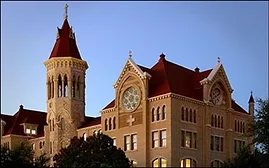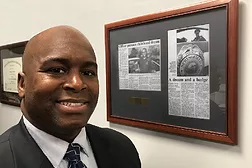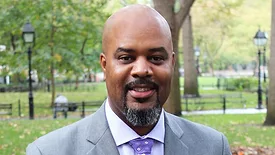Home » University security
Articles Tagged with ''University security''
How K-9 Programs are Force Multipliers
How do you know if a K-9 program is right for you, and how do you get started?
January 6, 2020
Protecting Students, Staff and Community at Marymount California University
Learn about Hector Rodriguez, Director of Public Safety and Security at Marymount California University.
December 4, 2019
Contracted vs. In-House Guarding: No Universal Right Answer
Your security officers: should you in-house or outsource?
December 2, 2019
Sign-up to receive top management & result-driven techniques in the industry.
Join over 20,000+ industry leaders who receive our premium content.
SIGN UP TODAY!Copyright ©2026. All Rights Reserved BNP Media.
Design, CMS, Hosting & Web Development :: ePublishing








